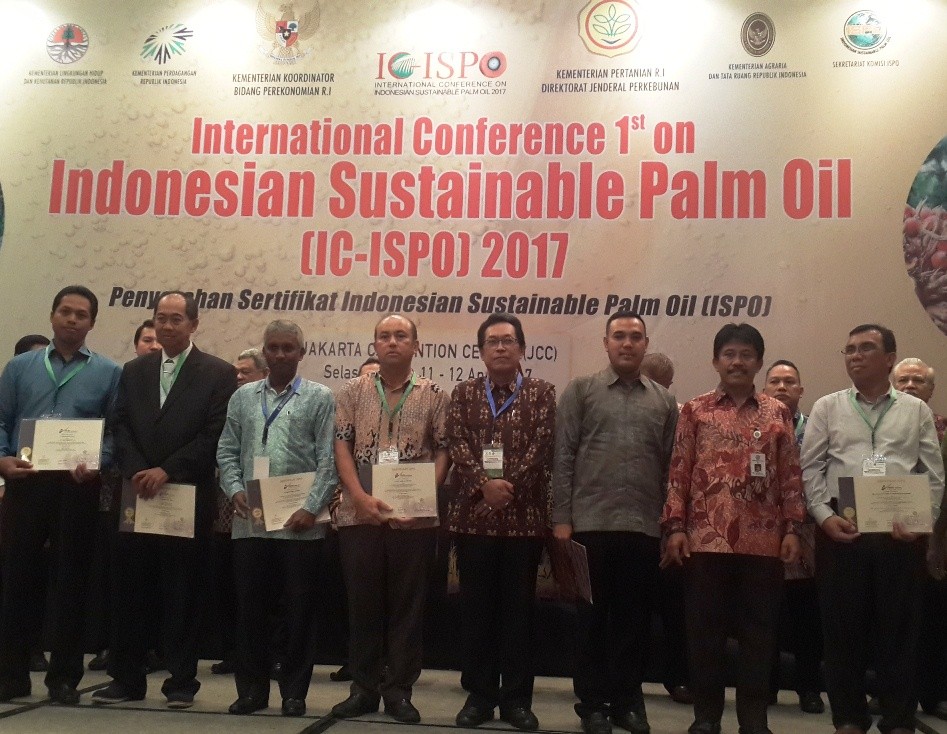Popular Reads
Top Results
Can't find what you're looking for?
View all search resultsPopular Reads
Top Results
Can't find what you're looking for?
View all search resultsOnly 12% of Indonesia's oil palm plantations ISPO certified
Change text size
Gift Premium Articles
to Anyone
T
he government’s effort to create a sustainable palm oil business still has a long way to go, as currently only 12 percent of the 11.9 million hectares of oil palm plantations in the country are Indonesia Sustainable Palm Oil (ISPO) certified.
Indonesia, the world’s biggest palm oil producer, must increase its efforts to practice sustainable oil palm cultivation amid a mounting push from the international community to reduce deforestation caused by the commodity.
“Various challenges in ISPO implementation should be accommodated by guiding smallholders and cooperating well with all stakeholders,” said Bambang, plantation director general with the Agriculture Ministry in his opening speech during the first international conference on ISPO on Tuesday.
Thirty-eight firms and two smallholder groups obtained ISPO certificate in the event, making a total of 266 institutions that have obtained the certificate to date. The conference runs until Wednesday and also hosts the first international forum for smallholders.
On April 4, the European Parliament issued a resolution to only import sustainable palm oil after 2020. The parliament called for a single international sustainable palm oil standard, which sparked objections from Indonesia and Malaysia, the world’s two biggest CPO producers.
Local businesspeople said they considered the call to be unfair and alleged the resolution was merely a business strategy to suppress the lucrative palm oil exports to the European Union, which produces competing oils from rapeseed and sunflowers. (ags)










